Lock Blog
A resource for consumers, locksmiths, and security professionals
A resource for consumers, locksmiths, and security professionals
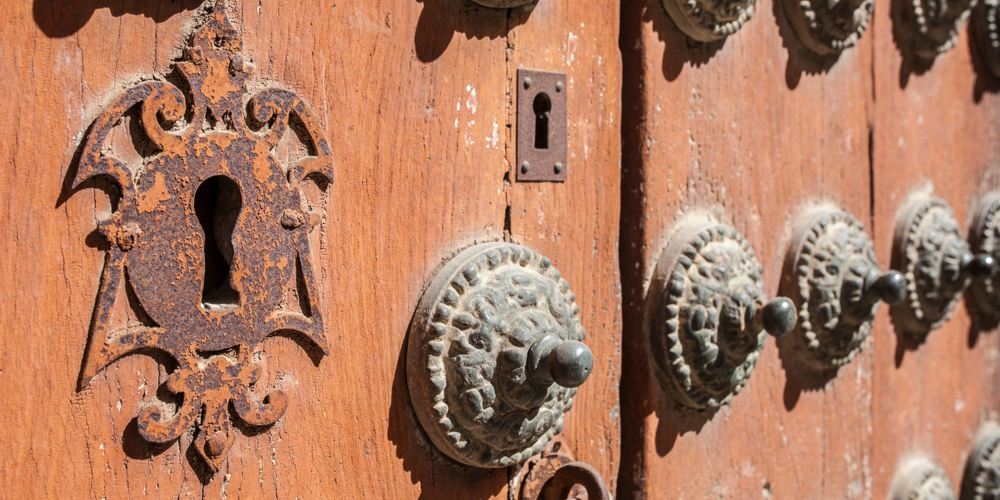
Through the cobwebs of history, there existed people and places now forever lost to time. Civilizations rose and fell. Those in power subjugated those without, only to in turn be subjugated by an empire with a stronger military might. Kings took gold and jewels from faraway lands… and then needed to prevent people from taking these treasures back.
Since the dawn of time, humans have always been obsessed with keeping valuable possessions for themselves and taking valuables from others. This has created an almost one-sided arms race, where one needed to know both how to obtain things and prevent others from taking your things. It’s the perfect environment for the invention of the lock.
Since there has always been a need for locks, their history goes back incredibly far. They are almost as old as civilization itself, and most early cultures innovated ways to safekeep their treasures.
We will probably never know who invented locks. All we have to go off of are old locks we dug up. No credits were given to their inventors, and no indication that these are even the first locks in existence, and older locks haven’t simply been lost to time.
We do know what these early locks looked like and where they were made. We understand on a broad scale who invented locks and why, even if we don’t know any individual inventor. We also know who invented locks in a more modern sense.
Here is a rough timeline of who invented locks:
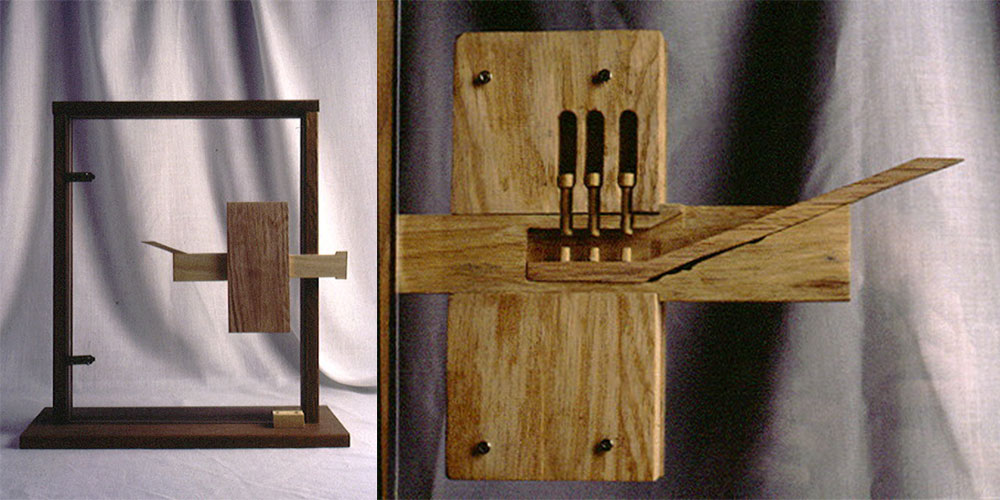
The original locks come from the ancient Near East, in the Fertile Crescent. This is where the earliest recorded human history takes place, in civilizations such as Mesopotamia and Ancient Egypt.
Historians believe that locks may go back as far as 6,000 years in the early days of Mesopotamia, about 600 years before writing was invented. They were somewhat common in Ancient Egypt. It’s unclear who invented locks, but it was someone around that time and place.
Locks back then had a lot of the principles of modern locks, even though the same technology wasn’t there. They were made entirely of wood (although eventually, the Egyptians started making some parts of them out of brass) and involved pins sitting inside a bolt.
When the key was inserted, its comb-like series of points would push the pins upward, getting them out of the bolt and allowing the bolt to be slid away from the door.
The earliest lock ever found was discovered in Dur-Sharrukin, which translates to Sargon’s Fortress. This was a city built for King Sargon II of the Neo-Assyrian Empire in Khorsabad in modern-day Iraq. The city was never finished due to Sargon II dying in a battle. Sargon’s son abandoned the project after getting the throne.
This city was built around 700 B.C.E. As a result, they are far from the oldest locks in existence. Sargon II is not who invented locks. Assuming that they do date back to 4000 B.C.E., locking mechanisms were about as ancient to Sargon II as King Tut is to us. And King Tut was as old to Sargon as Joan of Arc is to us!
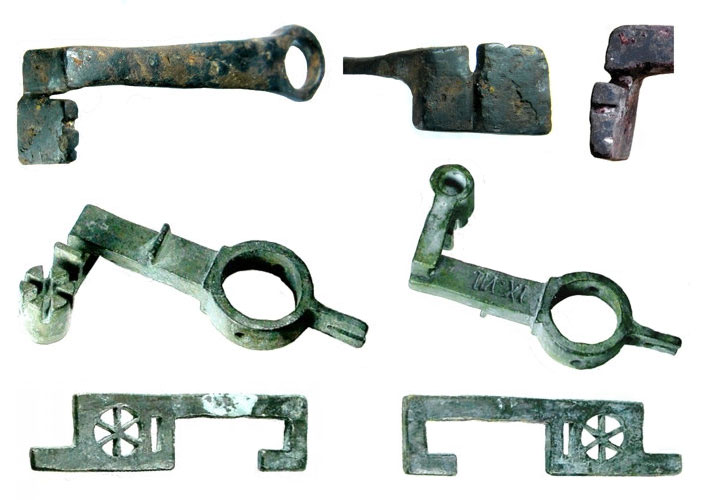
This lock spread around, most notably throughout Greece, Rome, and China. It did not matter who invented locks. They were taking the design for themselves and putting new spins on it.
The Greeks used a curved sickle-shaped key that could fit into the top of the wooden bolt to reach the pins and open the lock. The Chinese created all kinds of new locks, inventing their own rudimentary padlocks and other types that differed in security depending on the door.
The Romans developed this lock design further. It came into fashion that rich people would wear keys as rings to show off that they had things worth stealing.
The Romans had an innovative idea: what if, instead of flimsy wood, locks were made out of metal? Now you couldn’t just break the lock with your bare hands, which was previously a problem.
Even if it’s unclear who invented locks made of metal, we know to credit the ancient Romans and their ingenuity.
The Romans also invented wards. These are blocks that prevent the wrong key from opening the door. If your key didn’t have the correct shapes cut into it, it would get caught on the wards.
These “warded locks” are most likely what comes to mind when you think of old locks. The Romans are who invented locks as we know them today, even if they still looked a little weird.
If you’ve ever heard the phrase “skeleton key,” these Roman warded locks and keys are most likely what comes to mind, even if that’s not what a skeleton key is.
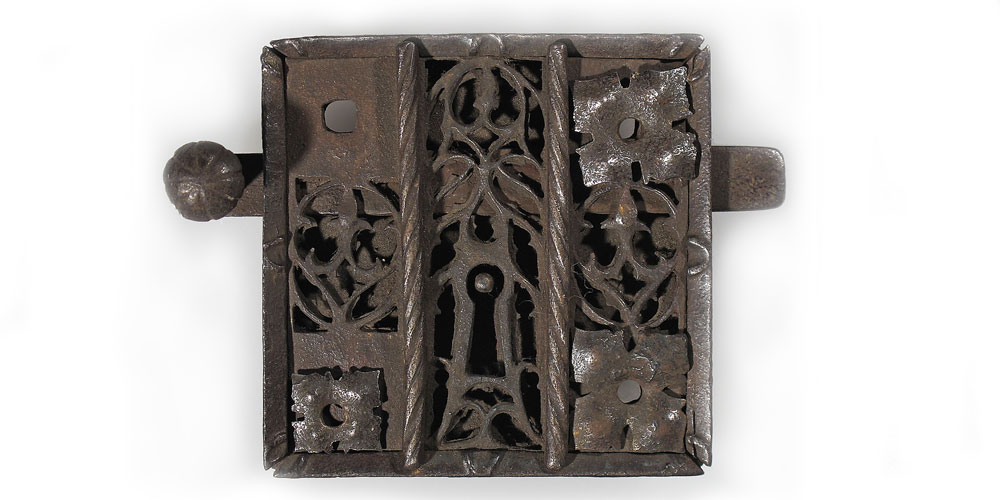
Throughout medieval times, the Roman warded lock was used extensively. The problem with this type of lock was that it could be bypassed with nothing but a skeleton key, but it was still the best lock available.
Most locks throughout the medieval period were made with intricate wards to increase security. Lockmakers were more focused on how to get the most out of the technology that already existed than innovating new technologies.
It was several centuries before anyone thought to improve the lock’s design. There wasn’t much innovation in general in the medieval period. There was a popular idea that all of the best people had already lived, and human civilization was simply on a decline.
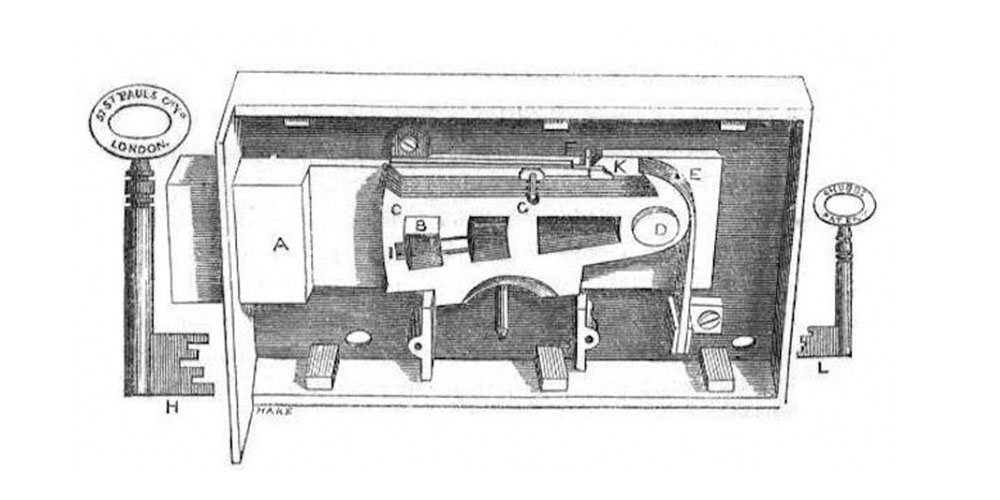
The industrial revolution saw an explosion of lock innovations, almost to make up for the slow Medieval period. These are the people who invented locks as they are today.
The first of these came in 1778 when Robert Barron invented the lever lock. This lock worked by having a series of levers lifted by the key. The levers must be raised to the correct height to open the lock, no higher. These cannot be opened by skeleton keys and are much harder to pick. Lever locks are still occasionally used today.
In 1784, inventor Joseph Bramah (who also invented the flush toilet and hydraulic press) improved this lock. His lock was so secure he issued a challenge to anyone who could successfully pick it: if successful, they would get 200 guineas or 210 pounds. This is £31,953.16 (or $43,166.13) in today’s currency, so it’s quite a lot of money.
Abraham O. Stansbury took the basic principles of Joseph Bramah’s lock and patented it in 1805. This was the first lock patent given by the U.S. Patent and Trademark Office, even though he is not who invented locks.
In 1818, Jeremiah Chubb invented the Chubb Detector Lock. This was a lock that would stop working if someone tried to pick it, preventing it from opening and revealing that the lock had been tampered with. This lock was so famously secure that it became known as an unpickable lock, featuring in several Sherlock Holmes stories as a clue that a lock hadn’t been picked.
Linus Yale Sr. is the man who invented locks as most modern people know them. Specifically, he invented the pin tumbler lock. This uses two rows of pins stacked on top of each other that block the mechanism from turning. When the correct key is inserted, there’s a gap between the pins, allowing the lock to be rotated.
His son, Linus Yale Jr., further improved on this design. This is the blueprint that a majority of modern locks are based on. You can thank Linus Yale Jr. for the locks on your front door.
Eventually, a man named Alfred Charles Hobbs came along. Hobbs considered himself a very skilled locksmith. He considered himself this because that’s exactly what he was: the kind of locksmith that knew locks inside and out and laughed at any challenge that came his way.
Hobbs went to the Great Exhibition of 1851, ready to change the lock world. He introduced Robert Newell’s Parautoptic lock, which was a lock that could change its levers without ever needing to open the lock. While there, he picked the unpickable Chubb Detector Lock without it detecting a thing.
Hobbs also took a crack at Joseph Bramah’s supposedly unpickable lock. It took him about 16 days, but he successfully opened that one too. After some arguing, Joseph Bramah reluctantly handed over the 200 guineas. To this day, the concept of an unpickable lock is considered pure fantasy or not true for long.
However, the Parautoptic lock was by far not the most innovative lock invented in that decade. Only six years later, James Sargent created the first combination lock.
Can you guess who invented locks with a timer on them? That’s right, it was also James Sargent in 1873. They’re called “time locks,” and they can’t be opened outside of a particular time of day, preventing bank robbers from coming in at any time and threatening bank workers for safe combinations. Banks still use them regularly.
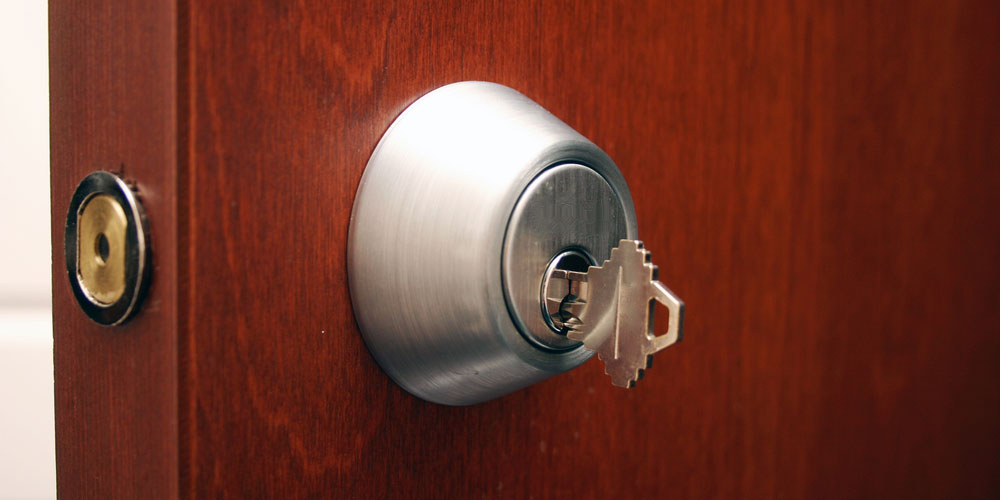
In modern times, locks continue to be developed and innovated. Now that electricity is commonplace, many people have invented locks that use electronic mechanisms.
You have electromagnetic locks, which stay locked due to an electric current that keeps them magnetized. Electronic keypad combination locks have many commercial and residential applications. And smart locks are becoming increasingly popular, which can be unlocked with your phone or other devices.
And of course, unlike the ancient past, these days we know who invented locks like these, as the company name is generally written right on them.
However, the truth is most modern locks simply use Linus Yale Sr.’s pin tumbler lock. And Yale himself based it on the design that the Ancient Egyptians used. After 6,000 years, it has proven effective, even if we can’t know who first invented locks like these.
It’s unclear who invented locks, but they were probably invented in Ancient Egypt or Mesopotamia. There are records in Egypt from 4,000-6,000 years ago mentioning their existence, so we know roughly when they existed, but not the details of their invention.
The oldest lock ever found was in Khorsabad, Iraq, in the ruins of the palace of Sargon II. It used a massive wooden key with a series of points on it. These points lifted pins inside the lock, allowing the lock to be opened.
The Egyptians took this lock design and added brass to it. Ancient China also utilized this basic lock design for their doors, as did ancient Greece. The Romans invented the warded lock, which most people picture when they hear “skeleton key.”
The very first locks ever made came from the ancient Near East. They were made entirely of wood, as metalworking technology was not particularly advanced. They involved large wooden keys with points that lift pins inside the lock. Nobody knows who invented locks, but it was someone from the ancient Near East.
Since the dawn of civilization, there has been a need for locks and keys. As long as a concept of ownership exists, there will be people taking what does not belong to them and people keeping their possessions at all costs.
Locks, and those who pick them, will always have a place in human history. From the ancient Near East, where kings built palaces full of treasures, to the Romans, where aristocrats wore keys like rings to flaunt their wealth to criminals who couldn’t crack their locks.
From medieval Europe, where locksmithing was an artform, and expensive locks were elaborate. To the Industrial Revolution, where new designs were dreamed up and expertly implemented.
All across space and time, locks have been there. The dance between locksmith and lockpicker is an eternal one. Each field innovates and upgrades, and the other must innovate and upgrade in response. This will continue until the end of human civilization as we know it: when we achieve a utopian society where ownership is a dead concept and theft does not exist.
We may never learn who invented locks, but their design has echoed throughout history. They changed the world, whether they know it or not, and even today, their influence can be felt. The person who invented locks is one whose work will last eternally.
For now, locks will continue to innovate. Who knows what the next few decades will bring?
Category: Lock Picking, Lock Types